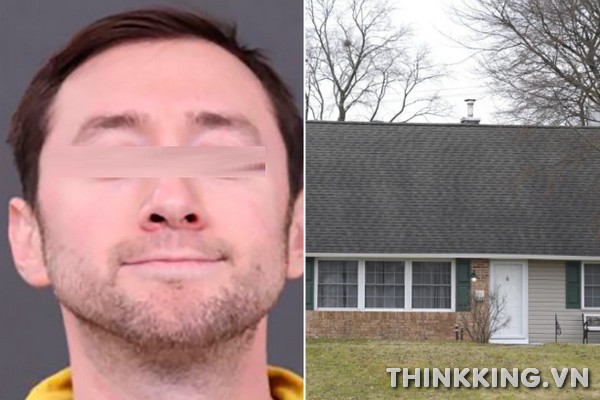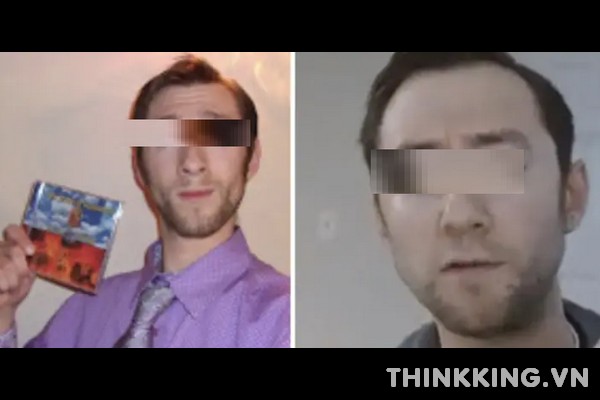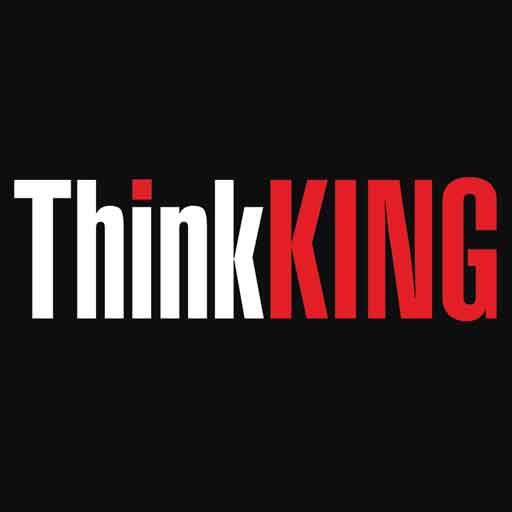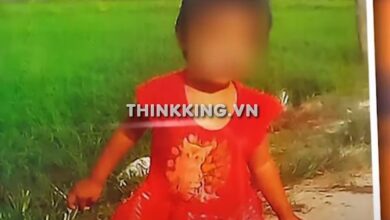[Watch video] Justin Mohn Beheading Video Original Full On Reddit
Thinkking.vn presents an in-depth exploration of the harrowing case that has shocked Levittown, Pennsylvania—a quiet community shattered by a gruesome act of parricide. Our latest article delves into the “Justin Mohn Beheading Video Reddit and Twitter” phenomenon, unraveling the story of Justin Mohn, a man who brutally murdered his father, a federal employee. The “Justin Mohn Video Reddit” and the “Beheading Video Twitter” became the pivot points of a digital horror story that spread like wildfire across platforms, including the unfiltered realms of Reddit and the shadowy recesses of 4chan, where the “Justin Mohn Beheading Video Original Full On Reddit, 4chan No Blur” surfaced without censorship. This chilling account scrutinizes the digital breadcrumbs leading to the question on everyone’s mind: Who is Justin Mohn? Join us as we dissect the complex layers of online radicalization and its stark spill into violent reality, probing the challenging implications for society at the volatile crossroads of cyber vitriol and physical brutality.

I. Introduction: The Unthinkable Act
In an alarming eruption of online infamy, the “Justin Mohn Beheading Video” surfaced on Reddit and Twitter, yanking the sleepy town of Levittown into the harsh spotlight of a national discourse. This grotesque footage, showing the decapitation of Michael Mohn by his son Justin, transcended the bounds of the dark web to mainstream social media, leaving viewers horrified and the digital community grappling with its virality. The video’s rapid dissemination raised critical concerns about the ease with which such graphic content can traverse platforms, infecting screens and psyches with unspeakable violence. As the clip propagated from Reddit to Twitter and beyond, the shockwave it sent through the internet was a harrowing reminder of the potent and often uncontrolled ripple effect that social media can have. This incident not only triggered a law enforcement response but also sparked a broader conversation about the role of social media in both reflecting and possibly inciting real-world violence, questioning the responsibility of platforms to curb the spread of extremist content.
The globe was shaken to its core by the emergence of the “Justin Mohn Beheading Video,” a piece of content so barbaric and unfiltered that it transcended the darkest corners of the internet. Originally surfacing on platforms like Reddit and 4chan without any blurring or censorship, the footage depicted the grim decapitation of Michael Mohn at the hands of his son. The video bore witness to not only an act of extreme violence but also a chilling anti-government diatribe delivered by Justin, casting a stark light on the dangerous intersections of mental instability, extremist ideologies, and the capability for real-world violence.
In this unadulterated form, the video became a vessel for Justin’s alarming political extremism, echoing into the homes of unsuspecting viewers and stirring a mix of fear, anger, and profound concern across communities. It showcased the disturbing potential for online platforms to amplify and disseminate extremist content, inadvertently providing a megaphone for the most sinister of messages.
Social media platforms, caught in the storm of the video’s virality, faced a complex moderation dilemma. The “Justin Mohn Video” tested the agility and ethics of content moderation systems, which struggled to contain the clip’s proliferation. Despite attempts to remove the graphic content, the video’s spread highlighted the herculean task platforms face in policing billions of posts, often relying on user reports and automated systems that may fail to quickly identify and remove such extreme content.
The aftermath saw a beleaguered attempt to assess the impact of the “Justin Mohn Beheading Video Original Full On Reddit, 4chan No Blur” and understand the failure points that allowed its circulation. Questions were raised about the effectiveness of existing content moderation policies and the balance between censorship and freedom of expression. The incident ignited a discourse on the moral and social responsibilities of social media giants, prompting a reevaluation of the role they play in either curtailing or facilitating the spread of digital extremism.
In dealing with the “Justin Mohn Video,” platforms were forced to confront the uncomfortable truth that despite their best efforts, their virtual landscapes could serve as breeding grounds for radicalization and violence, reflecting the urgent need for more robust and proactive measures to safeguard the digital ecosystem from becoming an echo chamber for the deranged and dangerous.

III. The Aftermath: A Community in Disarray
In the aftermath of the “Justin Mohn Beheading Video” surfacing online, the tranquil community of Levittown was thrust into chaos, its peace shattered by the heinous act captured on camera. The swift dissemination of the video on platforms like Reddit prompted an immediate and coordinated response from law enforcement agencies. Utilizing digital footprints and public tips, authorities were able to act swiftly, tracing the digital breadcrumbs from the “Beheading Video Twitter” posts and other online alerts to pinpoint and apprehend Justin Mohn. This rapid capture underscored the growing interconnection between technology and policing, highlighting the crucial role of online communities in aiding law enforcement efforts.
The shockwaves of the incident reverberated through Levittown, unsettling its residents and challenging their perception of safety within their own community. The “Justin Mohn Video Reddit” incident became a dark testament to the vulnerability of any town to the unpredictable nature of such violent extremism. The community, known for its quiet neighborhoods, found itself grappling with the reality of the digital age—where the proximity to violence is not governed by geography but by internet connectivity.
Local authorities, recognizing the depth of the trauma inflicted, stepped forward to offer support and reassurance to the residents. Public statements were issued, condemning the violence and extending sympathy to the family of the victim and the community at large. Efforts were made to bolster community solidarity, with local leaders and law enforcement calling for unity in the face of this tragedy. They emphasized the need for vigilance and community engagement to prevent such events from happening again.
As Levittown dealt with the repercussions of the “Justin Mohn Beheading Video Reddit and Twitter,” the incident served as a grim reminder of the pervasive reach of online content and its potential to disrupt and distress real-world communities. It highlighted the importance of collaborative efforts between the public, authorities, and social media platforms to create a safer digital environment and the significant role that local support systems play in the recovery and healing of a community in the wake of such a disquieting event.
IV. The Perpetrator: Who is Justin Mohn?
Justin Mohn, became the subject of intense scrutiny as both law enforcement and the public sought to understand the motives behind such an abhorrent crime. Delving into the background of Justin, a Pennsylvania man who gruesomely murdered his father—a federal employee—revealed a complex and troubling profile. The “Justin Mohn Beheading Video Original Full On Reddit, 4chan No Blur” offered a ghastly window into the perpetrator’s state of mind at the time of the crime.
The insights and speculations garnered from the video and subsequent investigations painted a picture of a man who had descended into a vortex of anti-government sentiment. The ideology that permeated the “Justin Mohn Beheading Video Reddit and Twitter” pointed to a radicalization process that may have been simmering undetected for some time. The video was not just a documentation of a violent act, but also a manifesto of sorts, revealing a twisted worldview where violence was seen as a justifiable means to an end.
Understanding the extremist views expressed by Justin required a deep dive into the ideological spiral that often characterizes such individuals. His anti-government rant reflected a detachment from societal norms and an embrace of a fringe belief system that vilified the state and its representatives. It is these beliefs that likely fueled the brutal act captured on video, as Justin appeared to see his father not only as a parental figure but as a symbol of the government he so vehemently despised.
The case of Justin Mohn underscored the urgent need for more profound engagement with the factors that contribute to extremist radicalization. It highlighted the complex web of psychological, social, and ideological threads that can lead an individual down a path of violent extremism. As the community of Levittown and the nation grappled with the fallout from the video’s circulation, the figure of Justin Mohn stood as a stark reminder of the dark potential that can lurk behind the anonymity and freedom of the digital world, and the importance of vigilance in identifying and addressing the early signs of radicalization.

V. The Larger Issue: Anti-Government Extremism
The “Justin Mohn Beheading Video Original Full On Reddit, 4chan No Blur” is a stark representation of how online platforms can act as catalysts for radicalization. The internet’s labyrinth of forums, message boards, and social networks has increasingly become a breeding ground for extremist ideologies. In these digital echo chambers, individuals like Justin Mohn may find their beliefs amplified and reinforced, leading to a radicalization that can manifest in real-world violence.
This incident is emblematic of a disturbing trend where online radicalization not only festers but also spills into the physical world with tragic consequences. The narrative surrounding Justin Mohn—a Pennsylvania man who murdered his father, a federal employee—fits within a broader pattern where anti-government sentiments are being fueled and disseminated through digital channels, sometimes resulting in acts of terror and violence. These online spaces provide a sense of community and validation that can embolden individuals to take extreme actions in the name of their cause.
The response to the “Justin Mohn Video Reddit, Beheading Video Twitter” has placed social media platforms under intense scrutiny. The challenges they face in moderating content and the implications of their successes or failures have become a focal point of public discourse. As facilitators of communication and information sharing, these platforms have struggled to identify and curtail the spread of extremist content rapidly.
In the wake of such incidents, questions are raised about the responsibility of social media companies to detect and remove content that can lead to radicalization and violence. The balance between upholding free speech and protecting the public from harmful content is delicate and complex. The “Justin Mohn Video” case has highlighted the necessity for robust content moderation policies and the implementation of more sophisticated technologies to detect and prevent the dissemination of extremist material.
Moreover, the incident has brought attention to the need for a collaborative approach involving tech companies, law enforcement, policymakers, and civil society to address the root causes of radicalization and develop comprehensive strategies to combat digital extremism. This collaborative effort must also include educational initiatives that promote critical thinking and digital literacy, helping individuals recognize and resist extremist narratives they may encounter online.
The “Justin Mohn Beheading Video” serves as a grim reminder of the consequences of unchecked online radicalization and the pivotal role social media platforms play in either hindering or inadvertently fostering the growth of anti-government extremism.
VI. Conclusion: Seeking Justice and Understanding
The “Justin Mohn Beheading Video Reddit and Twitter” saga is a grim tableau of the digital age’s darkest corners, where the veil of anonymity and the vastness of the internet can sometimes shield the growth of extremism. It is a poignant reminder that online radicalization can lead to tangible, tragic outcomes, demanding a societal reflection on the broader implications of such incidents. The quest for answers extends beyond the pursuit of justice for the victim; it encompasses a need to understand and address the root causes of digital radicalism.
This incident underscores the necessity for a heightened awareness and proactive measures. Social media platforms, law enforcement, and communities must collaborate to counter the spread of extremist content. It requires not just reactive moderation, but also the implementation of preventative strategies that educate and empower potential targets of radicalization to resist indoctrination. The “Justin Mohn Beheading Video Original Full On Reddit, 4chan No Blur” serves as a call to action—a dire warning that vigilance is essential in the digital sphere, just as it is in the physical one.
In pursuit of justice and understanding, society must grapple with the complex interplay of free speech and the need for security. It is a delicate balance, one that requires careful navigation to ensure the freedoms of the many are not curtailed by the actions of the few. The case of Justin Mohn is a stark illustration of this modern challenge, prompting an ongoing dialogue on how best to safeguard our communities—both online and off—against the insidious threat of extremism.









